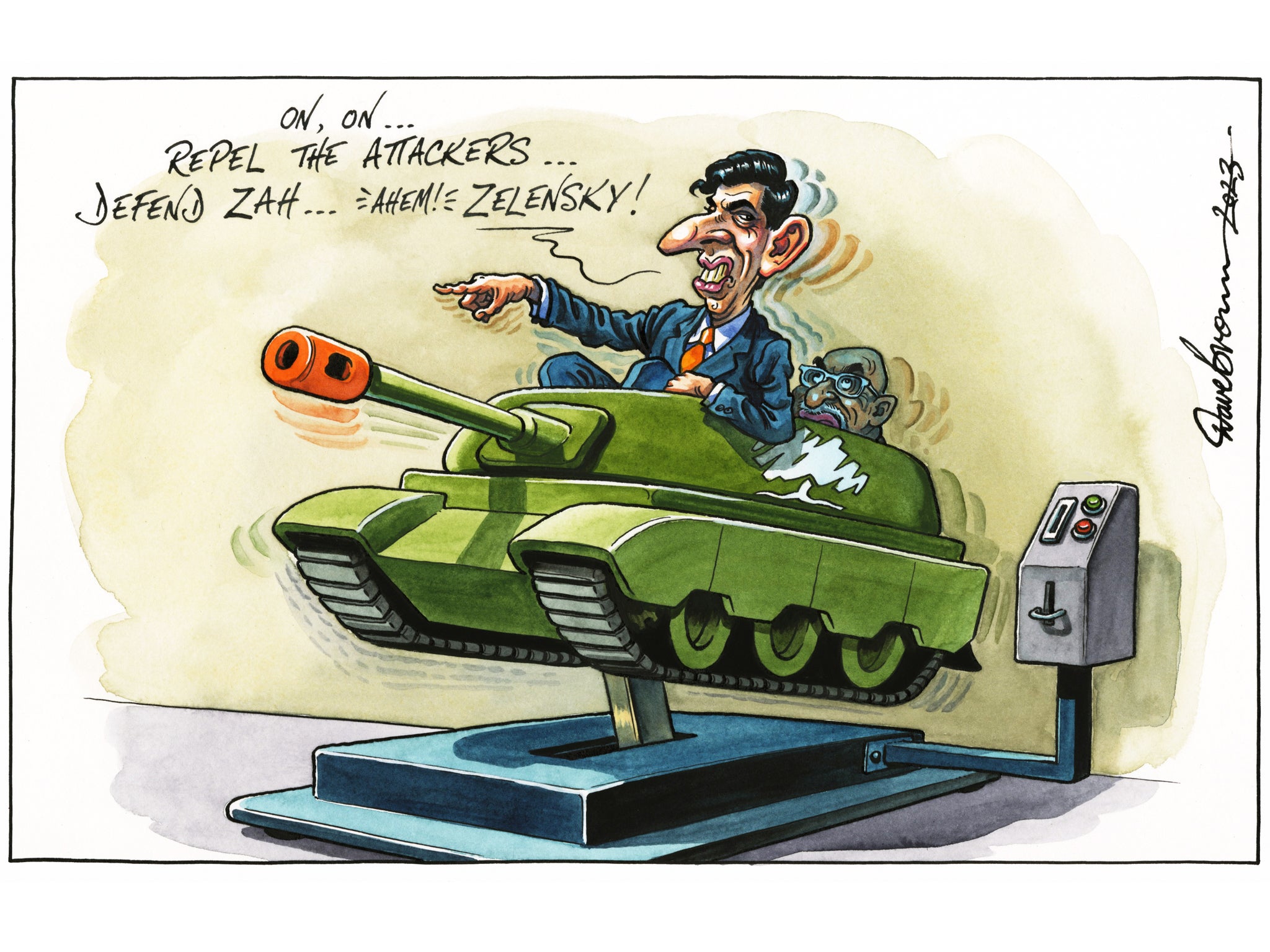If all goes as well as Volodymyr Zelensky hopes, by the summer he will have one of the largest, most potent tank armies in the world. He has asked for 300 battle tanks in order to launch counterattacks against the coming Russian offensive, punch holes in Russian-occupied territory and drive the invaders back to the border.
The Leopard tanks are expected from Poland, Finland, Netherlands, Australia, Spain and, now, Germany itself. Although each consignment will be relatively modest at first – Germany is despatching 14 out of hundreds in reserve – together they will comprise a formidable force. They will likely be joined by a few British Challenger 2s and French Leclercs. The US has also pledged to send 31 M1 Abrams. After a period when Nato was divided on the issue of supplying new materiel, once again the alliance has pulled together and rallied its friends across the world to the defence of a small nation fighting for its freedom. The total may not sum to 300, but they may well prove sufficient against the Russian counterparts.
Chancellor Scholz and his colleagues deserve the thanks of the whole world for their contribution to the security of independent nations everywhere. It has been a painful decision for their country to change course so rapidly and decisively, and one that has been forced upon them. The Kremlin, opening up the deepest of wounds, accuse Berlin of abandoning its “historical responsibility” to Russia by sending tanks to Kyiv. But this is not 1914 or 1941, and who is the fascistic aggressor preying on its smaller neighbours today?
Germany has an even higher obligation to peace and international security, and every nation has the right to defend itself and to ask for assistance before it is crushed. Germany has a conscience, the same as any other nation, and it cannot stand easily by as civilians are actively targeted in a war of terrorist aggression. The Russians, with their history, should know better.
Nonetheless, it has indeed been a shock for the German nation to reverse more than a half-century of foreign policy aimed at reparation and reconciliation with Russia. Ostpolitik even accommodated the Russian occupation of eastern Germany (where Mr Putin once served as a KGB agent). Germany has undergone much economic hardship with the loss of Russian energy supplies and the imposition of sanctions on Russia. Yet the Zeitenwende would never have taken place had President Putin pursued his grievances with Ukraine through peaceful, diplomatic channels, as mandated by the Charter of the United Nations. It is Russia, not Germany, that has broken international law and committed war crimes. Germany has nothing to be ashamed of. No doubt when the time comes, Germany can play a leading role in brokering a peace settlement.
On top of the latest consignments of air defence systems, missile launchers, drones, artillery and other armoured vehicles, the only danger is that the sheer volume of modern sophisticated machinery requiring complex supply chains will overwhelm the Ukrainians’ ability to make good use of them. The Ukrainians will also, it seems, not yet have full air superiority. It is no disrespect to point such a thing out because the Ukrainian armed forces and the country’s civilians and economy have been hammered so badly.
The Russians’ clear intent is to use time, their large numerical superiority, terror, war crimes and Wagner Group mercenaries to make up for their deficit in bravery and competence on the battlefield. But, just as a year ago, the Ukrainian people have shown that they will never give in, they are determined to drive the invaders out and have already pushed them back.




Join our commenting forum
Join thought-provoking conversations, follow other Independent readers and see their replies
Comments